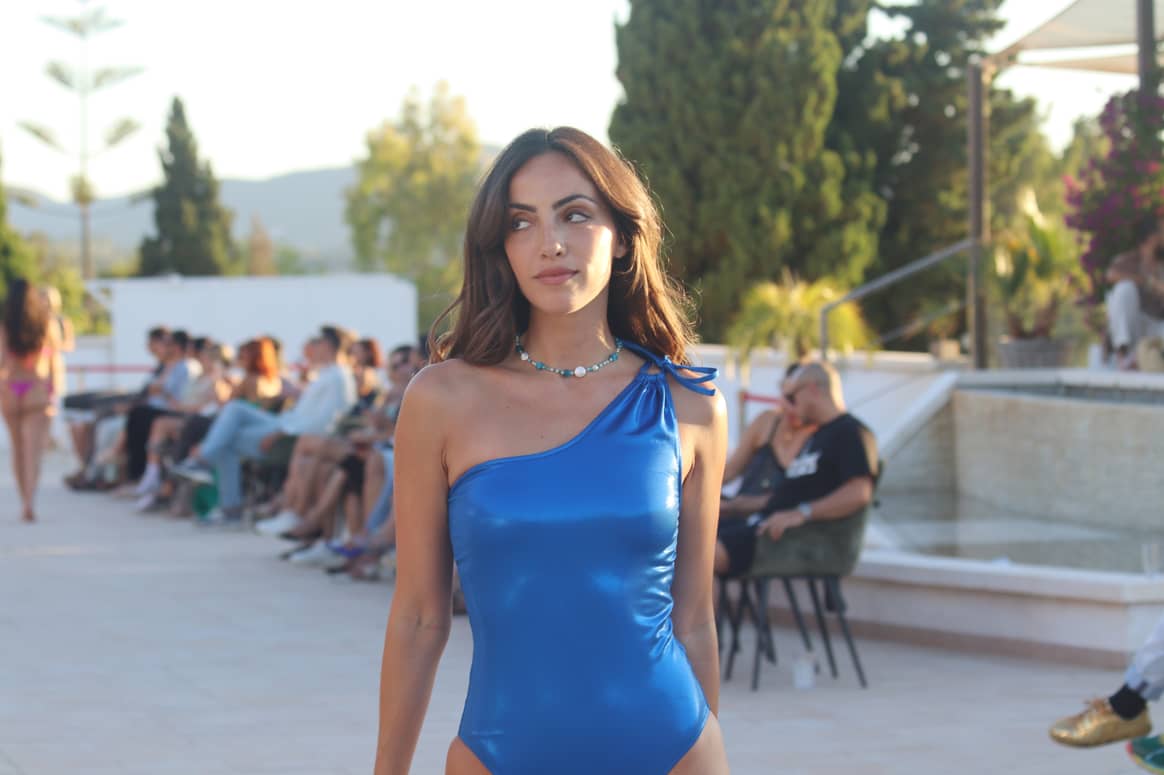Engaged in the clothing industry for 20 years.

Ibiza Fashion Festival: The event merging fashion, sustainability and business under the sun
When thinking of the Spanish isle of Ibiza, a contrasting image may be conjured up depending on who you ask. For Karen Windle, however, it is a destination for high-end, sustainable fashion and therefore the perfect location for her annual Ibiza Fashion Festival. First starting out as a regular holiday destination, Ibiza eventually became a cause for concern for the British stylist, who was increasingly aware of the locals’ issues with landfill, water shortages and the high-level of tourism that has left a devastating impact on the island itself.
In 2015, Windle saw somewhat of a solution in the form of a fashion event that doubled up as an awareness campaign for local environmental issues. This year, having taken place on the evening of July 4, the event continued to serve a niche part of the fashion industry in its upholding of small, sustainable labels, which naturally intertwines with the more bohemian, laidback essence typically associated with Ibiza. It is this aspect that has enabled it to become a mainstay on the island. “[The festival] has grown into its own thing and become very well known on the island,” Windle said in an interview with FashionUnited. “It’s the only completely sustainable fashion event held in Ibiza.”
For this edition, the Ibiza Fashion Festival took over the new event destination 528 Ibiza where, in the backdrop of scenic hills and a sunset, 19 brands showcased their beach and resort wear collections, including footwear, jewellery and accessories, in the formats of both a show and a showroom area where many displayed their products to attendees. The event’s 200 plus guests had the option to purchase either VIP tickets, for which they were served food and drinks in a special section while watching the show, or general admission, allowing them to view the spectacle with a cocktail in hand.
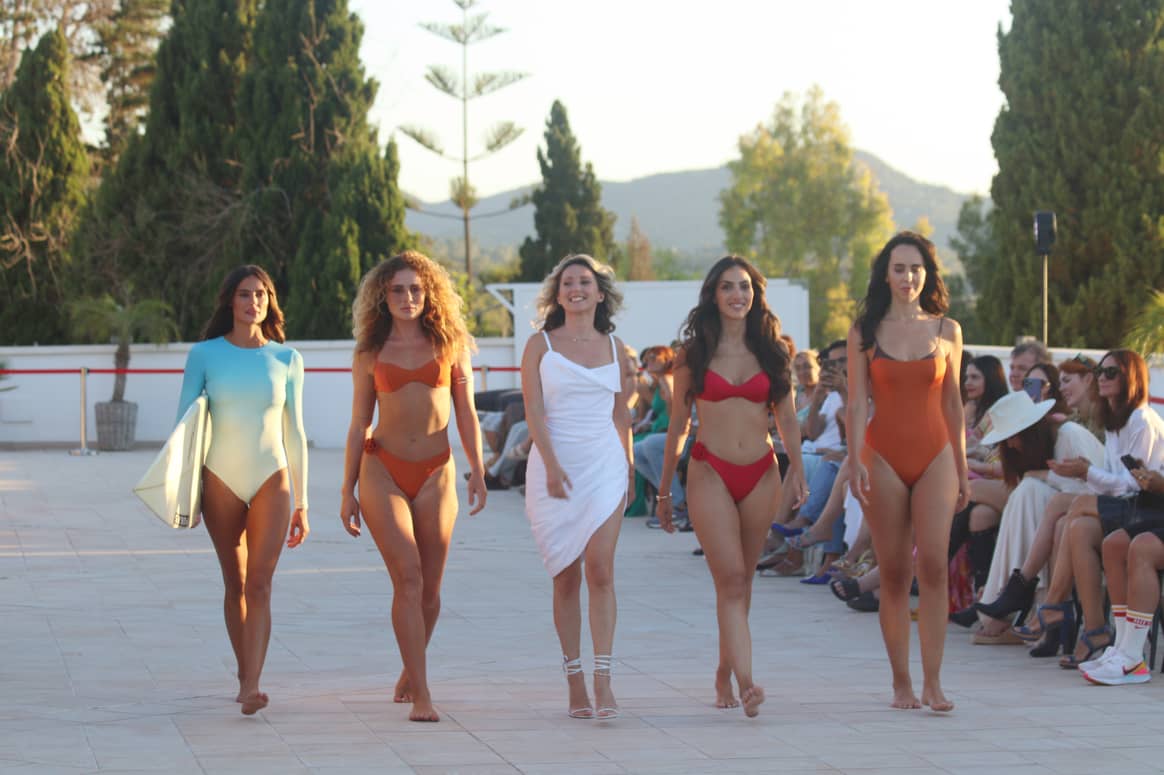
In a mission to ensure a more circular approach to event hosting, the festival also funds and supports beach clean ups sponsored by Cotton Ibiza in collaboration with non-profit One Pure Sea, which aims to tackle plastic pollution in Ibiza. The island currently only operates one small recycling collection that opened during lockdown, having previously shipped such waste to Barcelona. Ibiza Fashion Festival has intentionally separated itself entirely from this process, and in 2021 received a four star award for being completely plastic-free.
“On the island, the plastic-free concept is actually taken quite seriously. Anyone that has lower than three stars gets completely boycotted in certain areas,” Wandle noted. With the purchase of a ticket to the festival, a percentage of the price is donated to the beach clean up held the following day, and to which guests are also invited. “It’s all about the locals and the local companies actually on the island. Helping them to be more sustainable and ethical in the way they run their businesses.”
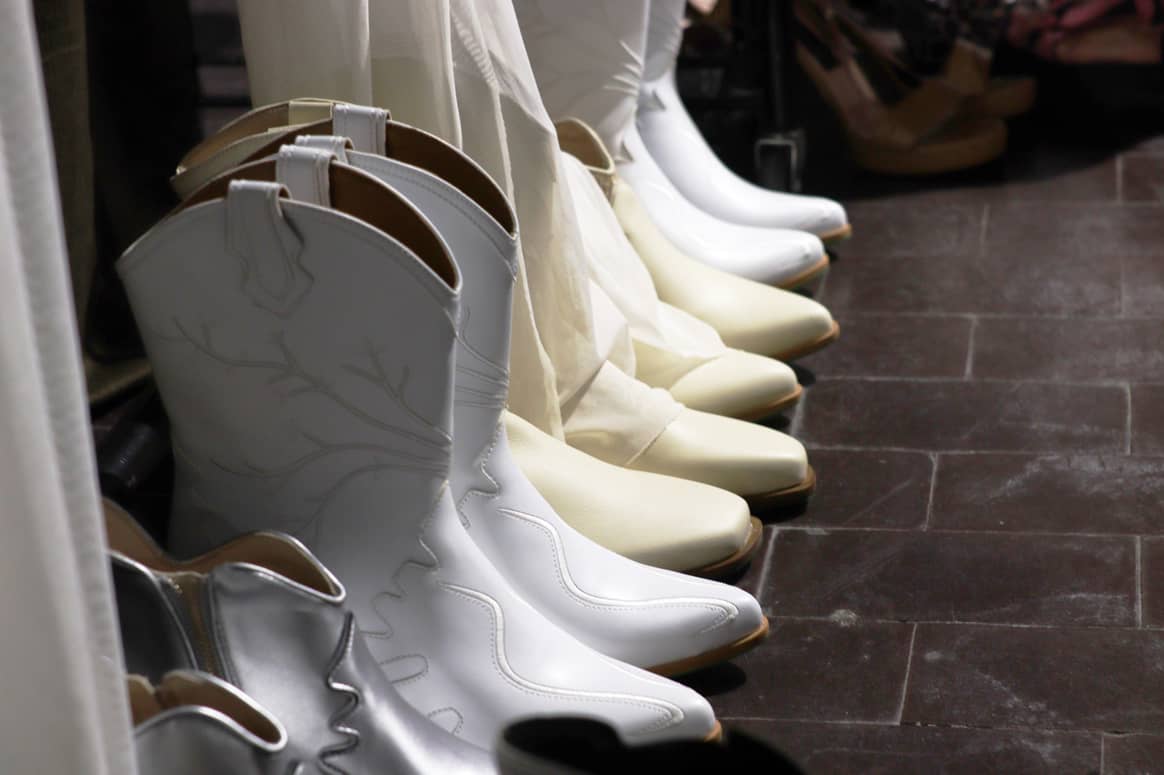
Participating brands descend from the global market
Evidence of Ibiza Fashion Festival’s growth and emphasis on its sustainable mission is only reaffirmed by its line up of, typically, emerging brands. This year, among the participants were the likes of North American labels Willa Phoenix Shoes, Richness N Simplicity, Femmes Sans Peur and Keilani Jewelry, while from the UK, Inflatable Amnesty, Les Waves and Thicks & Bones were also attending. Others included Dutch labels A Perfect Jane and Cavalcante, Dubai-based Dunesi, Columbian brand Arenas by Helen Acosta, Romanian label Cava cu Dichis, HartiSwim from the British Isles, Noema James of Ireland/Mallorca and Oceanus, a brand from Bali. These sat alongside local Ibiza names like Be EM Ibiza, Carnarnles Carnelita and Pacifico. The headline act, however, was Naia Beach, a beachwear label founded by Gayle Lawton and British TV presenter Tess Daly.
To make the selection, brands are subject to screening from consultants who determine if they qualify for the sustainable requirements. Many of these labels produce in small quantities, often handmade, yet their main thread of comparison is described by Windle to be “limited edition and luxury”. While it appears that taking part comes with strict requirements in the way of sustainability, Windle recognises the challenges that come with implementing such measures.
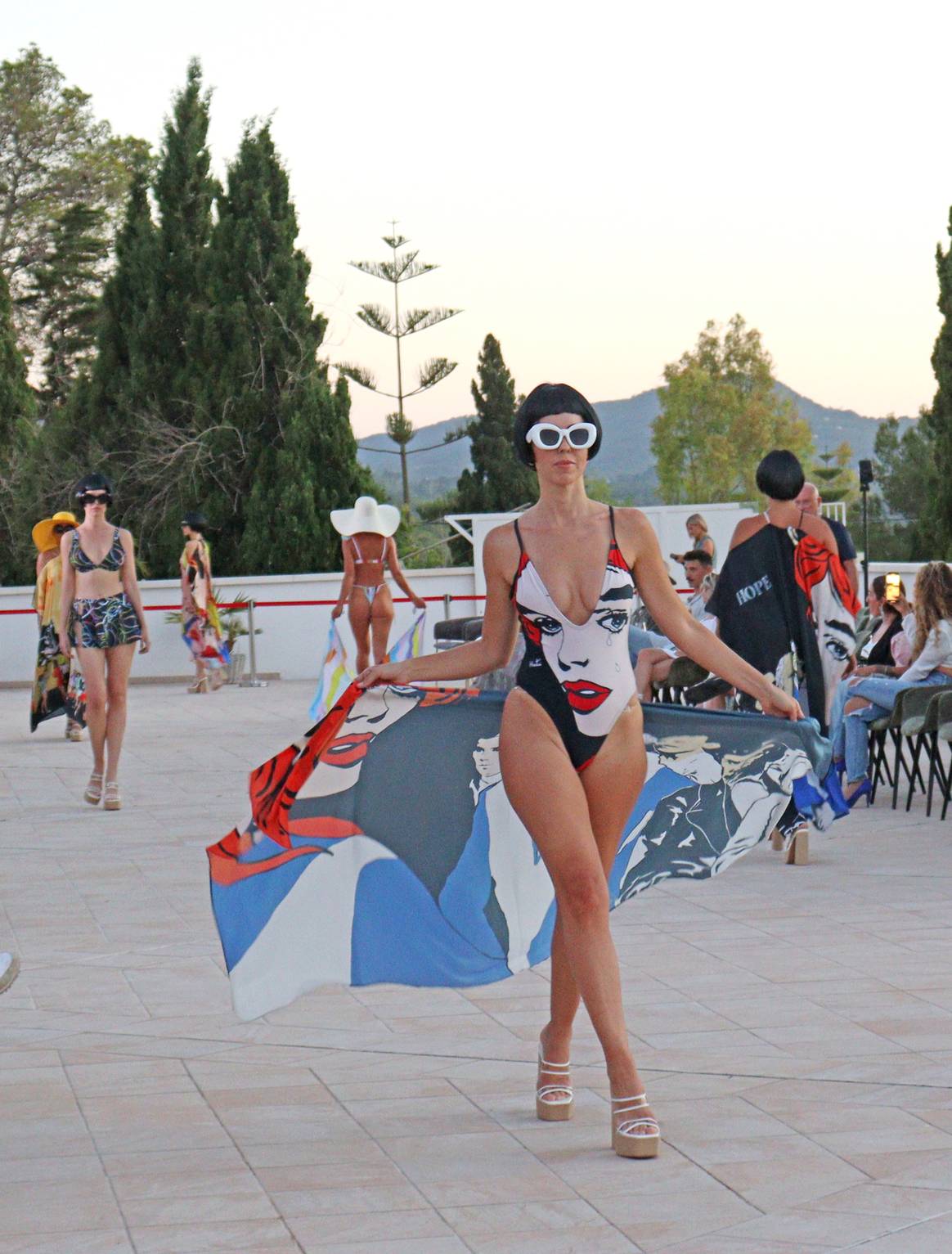
Her perspective leaves room for those that are not quite sustainable but are making the steps to get there, for which they are then categorised as “slow fashion labels”. “Those brands are making big moves in sustainability to actually bring out sustainable collections,” Windle elaborated. “For fashion brands, it’s very expensive once you’ve gone down that fast fashion route to actually then transfer to sustainable practices. Everything has to be redone and it costs a fortune. We don’t want to eliminate ones that are making that positive change. What they do instead is showcase their sustainable high-end collections that they want to eventually transfer.”
Brands eye permanent residence and community-building
As an island, Ibiza may at first appear to be a small market for brands to pursue, however, next to its 150,000 some residents, it is inundated with hordes of tourists every year –2023 seeing a record number of 14.4 million foreigners visit Ibiza and Formentera, according to figures by the National Institute of Standards (INE). Tourist spending, meanwhile, amounted to 4.3 million euros, up 20.8 percent from the year prior.
With this in mind, it is no surprise that smaller brands in particular see an opportunity to capture a percentage of this growing economy, both in Ibiza and in the wider Spanish market, where many participants are eyeing growth. Newly launched swimwear brand Harti, for example, sees the market as an opportunity to capitalise on a way of life that naturally fits with its own values of encouraging free-thought.
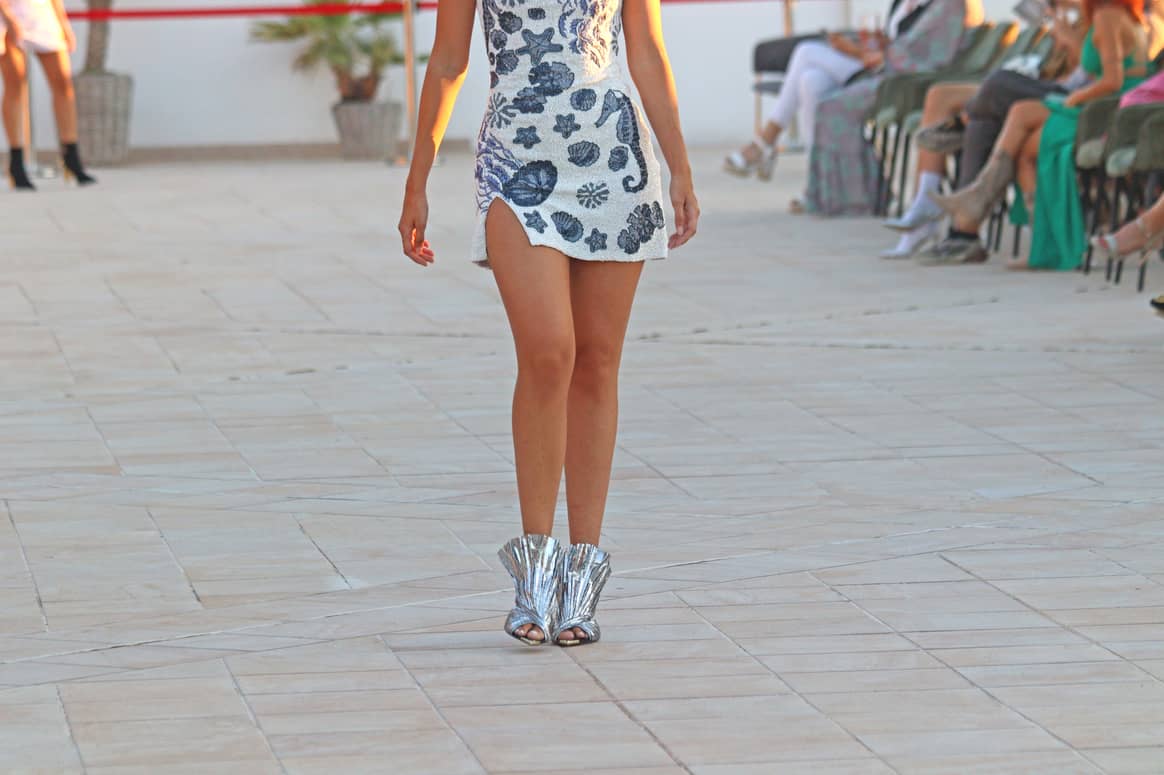
Its founder, Tessa Hartman, told FashionUnited: “At the moment we only sell online and our purpose is to build a Harti community: Consumers and people who share a sense of responsibility for what is happening in the world. In Spain, the swimwear market is robust with its growth, but consumers have a heightened awareness of environmental sustainability, which is driving demand for eco-friendly options, particularly from the younger generation.” For Hartman, the goal is to share Harti’s story through Ibiza, and therefore Spain, in order to keep the conversation surrounding these topics flowing.
A similar sentiment was shared by Ireland-based Noema James, which, like Harti, was motivated by Ibiza Fashion Festival’s emphasis on sustainability as its reason to participate. In terms of the market, the label sees Spain as a strong competitor in the realm of e-commerce, presenting an “excellent opportunity for growth”. Yet it is the eponymous founder’s Mallorcan roots that the company believes will resonate with Ibizan consumers.
“Generally speaking, Spanish consumers prefer known brands but are always curious about brands that are faithful to their lifestyle and can relate to them,” a representative for the brand said. “Fashion in the Balearic Islands transcends mere fashion; it embodies a lifestyle. Consumers are influenced by the tranquillity of the island’s way of life.” With James’ own background, the company therefore has good knowledge of what Spanish consumers look for in a brand, and works to provide this.
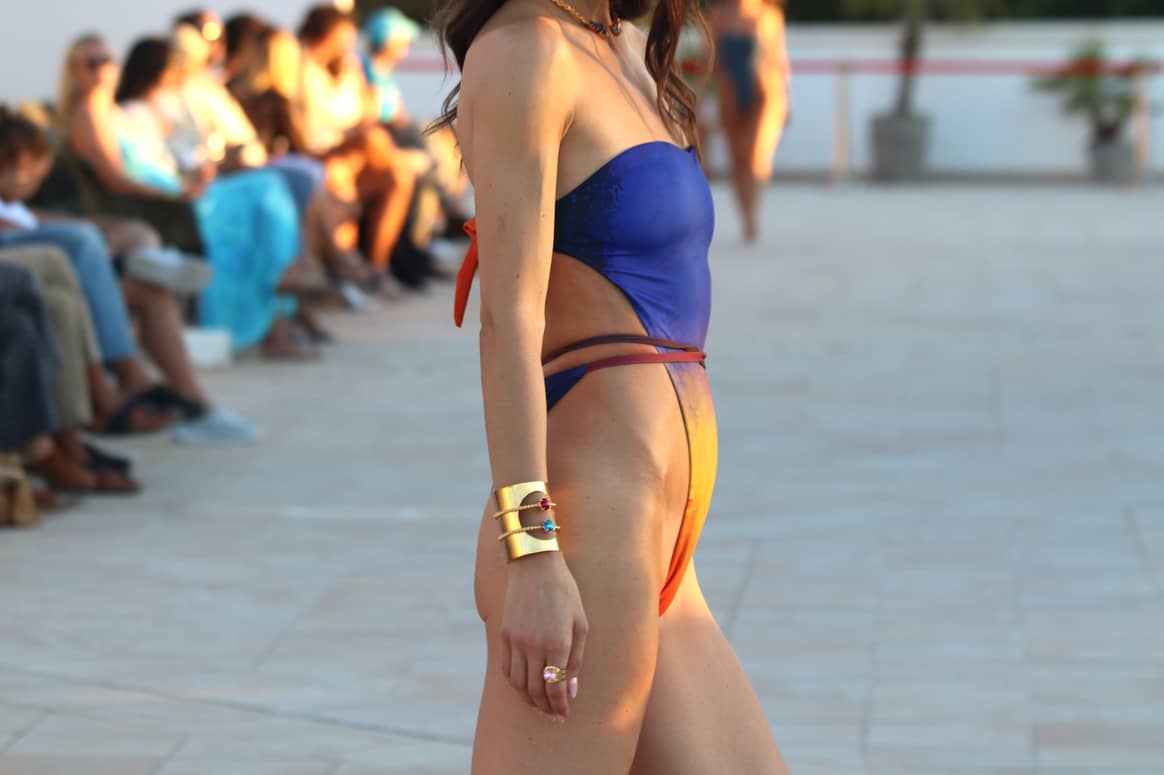
James is seeking connections with boutique owners, particularly in the Balearic Islands and the Spanish Mediterranean coast, that align with the brand’s sustainability and style values. It’s a similar outlook to that of Oana Sofron, the designer and founder of lifestyle brand Ceva cu Dichis, who has also set out to secure collaborations with boutiques while further participating in local markets. The brand is eventually planning to open its own store in Ibiza next year, after Sofron officially relocates to the Spanish island in September. It is then her intention to make Spain the brand’s principle market, calling the country the “right place” for Ceva cu Dichis as it is “open to the kind of products we are creating: minimal, natural fabrics, relaxed fitting and made with a lot of attention to the details”.
Challenges and opportunities of hosting a festival in Ibiza
For Windle, efforts extend beyond Ibiza Fashion Festival as she ensures that she retains a tight relationship with past participants and continues to support their endeavours long after attendance. Next to garnering feedback, Windle said she always catches up with brands to see what their future plans are, some often returning to the event year-on-year, either as participants or as guests. “They do come back but in a different capacity, because they strive to have a presence here,” Windle noted. “They get caught up in Ibiza and realise it’s the place for them, where they have gained a captivated audience.”
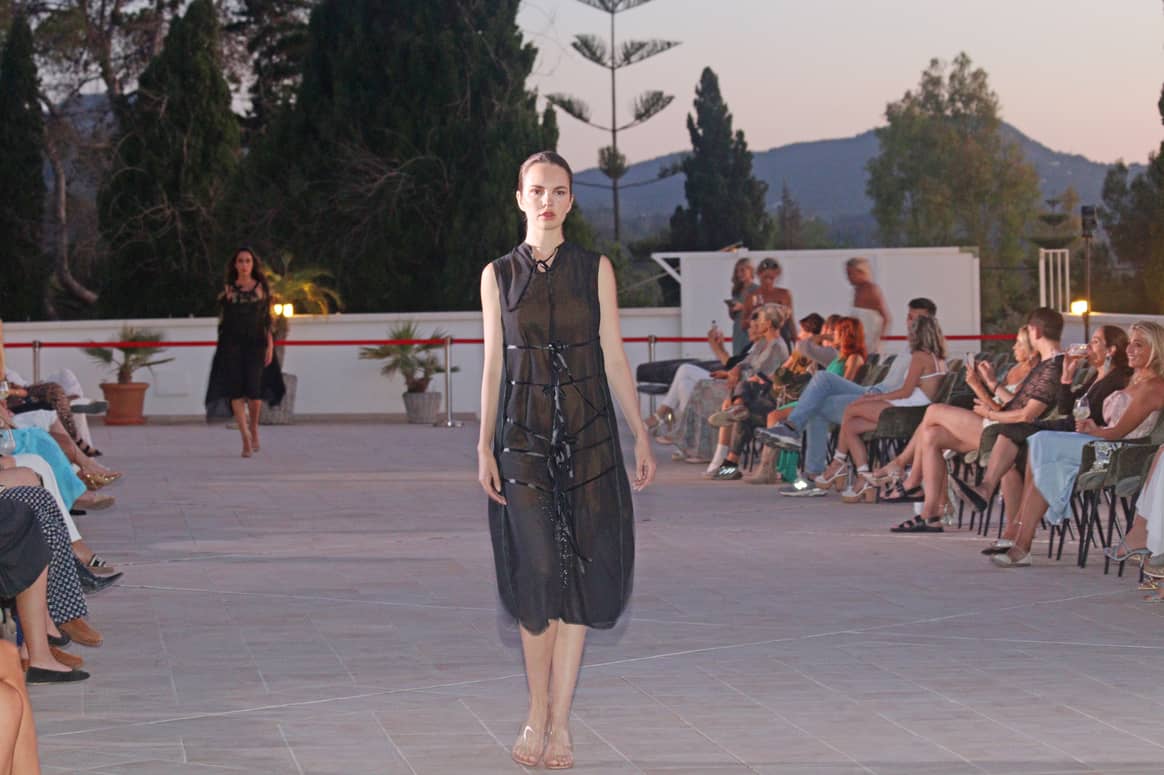
Her more personal approach to hosting comes as a reaction to the fashion industry as a whole, which she has long been part of, yet for which she has discovered many flaws. “With the festival, I try to make it as creative as possible,” Windle said. “It’s a one-off festival event. When you go to Paris or London, it’s very retail-inspired and all about resale, it’s very serious. I like to do things differently, and that’s why it stands out. I make it creative, but it’s got a serious message.” This in turn is reflected in the event’s model casting, which is entirely inclusive in order to break down barriers. “Paris and London have strict rules on their models, which can be a little soulless and very high pressure. Fashion is fun, but sometimes I think it gets transferred into an area where it’s all about retail, targets, selling and we forget about the expression it brings.”
A personable setting is also reflective in the currently more curated selection of visitors. While pandemic-induced dwindling attendance numbers may on some occasions be a cause for alarm, Windle actually saw this as a way to reevaluate the crowd. Pre-pandemic, 2,000 people descended on the event, a figure that reduced to 150 in 2021. Now, however, Windle has ensured that figures remain condensed, attesting that the current crowd is in fact more relevant to the cause, and allows for personalised treatment when networking. Beyond international press and influencers are the likes of CEOs, councillors, local officials and politicians, for example, more of which have begun attending as the years go by.
Windle elaborated: “[The pandemic] had actually done me a favour, because the people that did attend were there for genuine reasons. The message got spread around the island quickly as other noise had been dialled down so a lot of influential people turned up. I think that was the turning point really. To have those influential people that do matter on the island stand up and start taking notice, as well as those genuinely interested in the cause, it has helped us grow our reputation.”
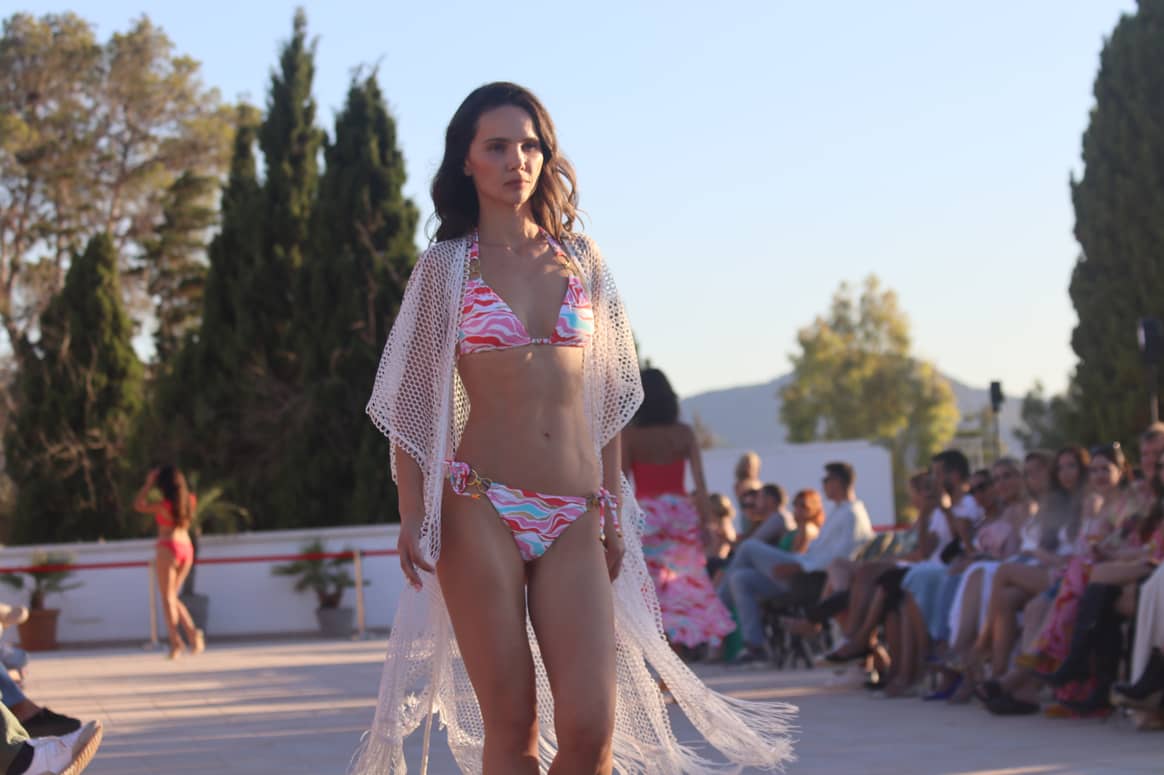
Next to the expected language barriers, securing a more positive reputation was highlighted by Windle as one of the central challenges the festival faced, particularly on an island known for partying and therefore often perceived to have strong ties to fast fashion. “That’s what people think of when it comes to Ibiza, and we’ve really had to fight that,” Windle said. “Now, everybody on the island knows what we do and why we do it and takes us very seriously.”
It’s a good job too, as Windle has no plans to slow down when it comes to building up the festival. Next to a Shopify website on which participating brands can sell and display one or two hero pieces at a limited capacity, Windle is hoping to secure a location for a permanent residence on the island which would serve as essentially a showroom for the festival’s brands, as well as a studio space for editorials. Education, however, is a primary factor for the stylist, who said she wants to take the concept more towards that of a local educational platform that, among other things, engages with graduate fashion in order to ring in a new era of eco-conscious, young design.
